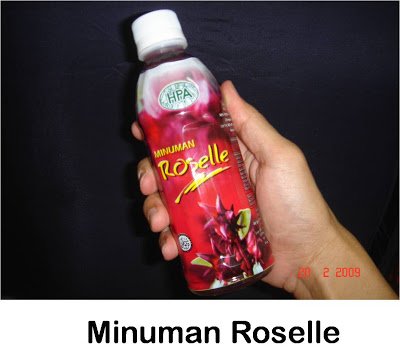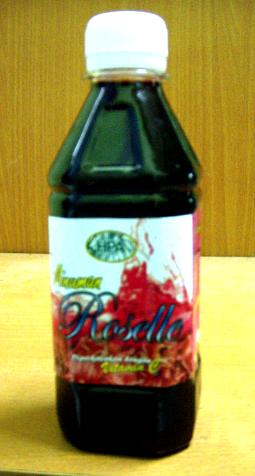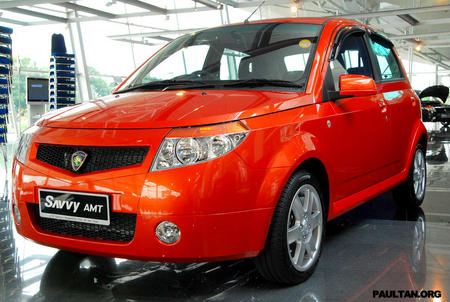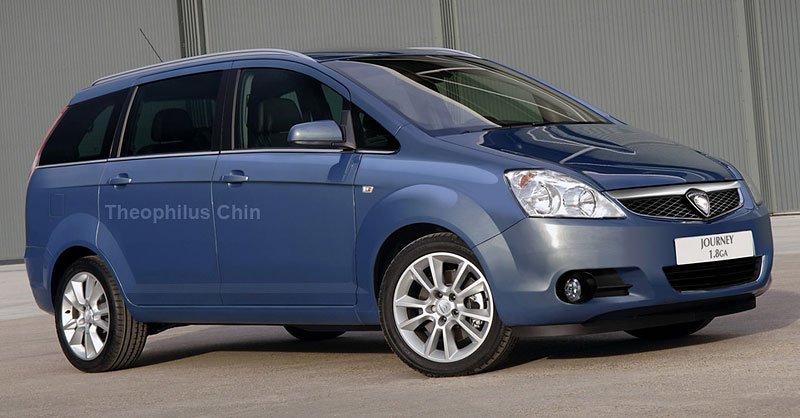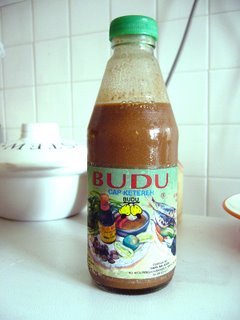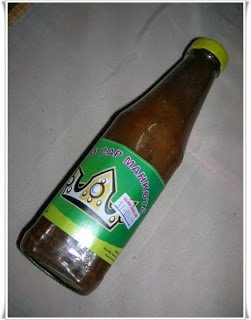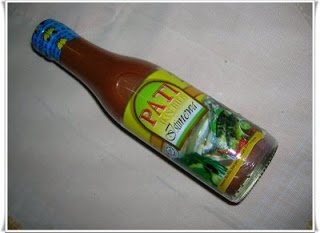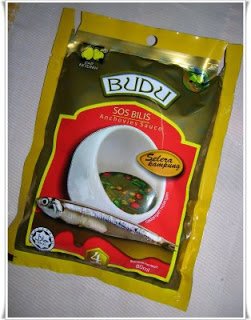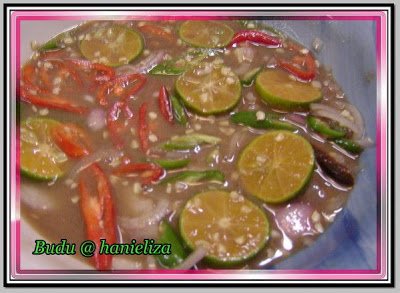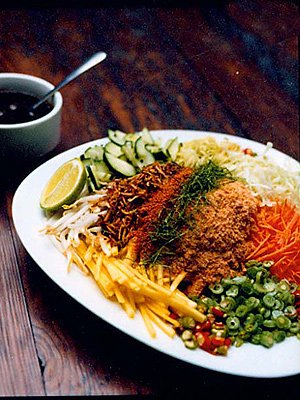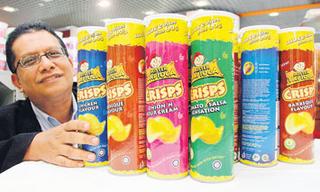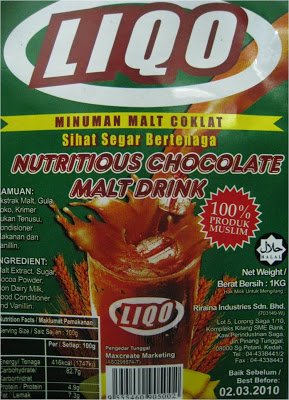Muslim Best Food Industries Sdn Bhd Product
MISTER TAPIOCA CHIP
Image Source : The New Straits Times (Travel Times).
Chips ahoy!
Posted in English Newspaper on December 16, 2008 by mistertapioca
From humble beginnings as a staple during the Japanese Occupation, tapioca is fast gaining fame as a snack in many countries abroad, learns SHANTI GUNARATNAM.
Taking chips to new frontiers, Sheikh Ahmad is dubbed ’Mr Tapioca Chip of Malaysia’. He is seen here with the many varieties of chips which his company Muslim Best Food Industries Sdn Bhd produces.
Taking chips to new frontiers, Sheikh Ahmad is dubbed ’Mr Tapioca Chip of Malaysia’. He is seen here with the many varieties of chips which his company Muslim Best Food Industries Sdn Bhd produces.
IT is a local delicacy that has been given a “new lease of life” and infused with a variety of flavours.
In the world of calorie conscious consumers, the more popular potatoes are now making way for the humble tapioca, the local root vegetable, which is packed with anti-oxidants.
From Kuala Lumpur to London, snack lovers are digging into bowls after bowls of tapioca chips.
Surprisingly, foreigners are consuming more tapioca chips compared to Malaysians.
And this Christmas, don’t be surprised if you see tapioca chips served along side turkey at many British homes.
“We have taken tapioca for granted, but the Westerners already know about its nutritional value and are consuming them more,” says Haji Sheikh Ahmad Dusuki, the managing director of Muslim Best Marketing (M) Sdn Bhd which exports some 10 containers of tapioca chips into England regularly.
Besides England, Sheikh Ahmad’s “Tappi Chips” are also popular in Canada, Ireland and China.
Our Asean neighbours, Singapore, Brunei, Vietnam and Cambodia are also chowing down these chips by the container loads.
In Malaysia, these chips are available in many hypermarkets as well as at the Airport Shoppe at the Kuala Lumpur International Airport where it is “flying” fast off the shelves.
“Many foreigners have mistaken the tapioca chips for potato chips. When you see them eating the chips, they have puzzled looks on their faces because they are wondering which of the two chips they are consuming.”
The Big Picture
According to Sheikh Ahmad, the snack industry worldwide is worth some four billion Euros and they see a huge potential in tapioca chips.
Each canister of tapioca chips is currently retailing between RM6.50 and RM8.30.
“We started making these chips two years ago at our factory in Kelantan. Mardi helped us a lot with research and development because we knew the growth potential of tapioca chips.
“Selling the chips at KLIA is the best thing we have done for our product because the mileage it has brought in terms of branding purposes,” says Sheikh Ahmad who is currently working on introducing new flavours for his tapioca chips.
Some of the new flavours he is looking into include Jalapeno and banana.
Local Favourites Flying High
If you think the Airport Shoppe only stocks fast food, think again.
They have gone local by selling acar buah (RM5 per bottle), pickled chillies and lime (RM5 per pack), rojak sauce (RM5), cincalok (RM2.70) and belacan (RM2).
The biggest buyers of these items are often foreigners.
Surprised? Don’t be, because many of them have learnt to eat these local delicacies when holidaying or residing in Malaysia. On their way back home, they buy these Malaysian favourites at the Airport Shoppe.
“The Indians love the pickled chillies and lime which they often consume with the many types of Indian bread or even rice,” says Zulpakah Hamzah of Zentech Trading, the maker and supplier of these products.
Zulpakah has taken the small family run business into a commercial success when he ventured out of his hometown in Sungai Rambai in Malacca into hypermarkets, retail outlets and the airport more than one year ago.
Everything that is on the shelves is made at home by his wife and relatives based on recipes handed down to them by their mothers and aunts.
In Malacca, Acar Buah Mak Jenah is well-known.
“We started off making acar buah to be served at weddings and that is how we started in the early years. As the demand grew for the acar, we decided to commercialise it.
“The family has worked hard to make Acar Buah Mak Jenah a household name and we are now working harder to take it international,” says Zulkpakah.
Monthly, some 60 bottles of acar buah are sold at the airport.
The acar is interestingly often eaten with sandwiches by foreigners.
Pictures by Rosela Ismail
Article Source:
http://www.nst.com.my/Current_News/...ourmetTrail/20081215145335/Article/index_html
More Info
http://mistertapioca.wordpress.com/



